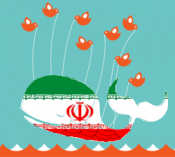 Here’s what has changed at OFAC. Yesterday OFAC announced a general license for Iran and Sudan that would permit export of
Here’s what has changed at OFAC. Yesterday OFAC announced a general license for Iran and Sudan that would permit export of
certain services and software incident to the exchange of personal communications over the Internet, such as instant messaging, chat and email, social networking, sharing of photos and movies, web browsing, and blogging.
To be eligible the services must be offered free of charge and any software must be EAR99, not subject to the EAR, or mass market software classified under ECCN 5D992. Also, the exporter must not have any reason to believe that the services or software is destined to be used by the government of Sudan or Iran. A similar license was announced for Cuba but it only covered services since BIS controls exports of software to Cuba. Any bets on how long it will take for BIS to act to permit these software exports to Cuba? BIS action will also be necessary for similar exports to Syria.
And here is what hasn’t changed at OFAC. Today OFAC announced that it spent untold tens of thousands of taxpayer dollars to fine some poor schlub $575 for buying Cuban cigars over the Internet. I have to assume that this single cigar purchase will provide funds to the current Cuban government that will keep it in power for about five minutes longer than otherwise would have been the case thereby justifying all the government expense involved in imposing the fine.

 Posted by
Posted by  Category:
Category: 


 No big news today, so it’s time for another Export Law Blog grab bag:
No big news today, so it’s time for another Export Law Blog grab bag:
 Last week the New York Philharmonic
Last week the New York Philharmonic 

